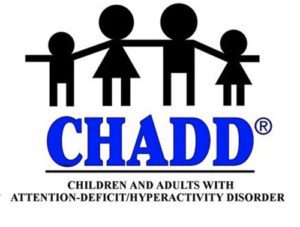How many times have we spoken to ourselves like this:
- “I am so stupid.”
- “I’m fat.”
- “I am a mean person.”
- “I’m not important.”
- “I am a failure.”
Self-criticism: the act of or capacity for criticizing one’s own faults or shortcomings
We learn self-criticism early in life. Maybe we learned it comparing ourselves to our siblings or the result of a perfectionist parent. Whatever the source, self-criticism threatens your mind and body. Unfortunately, self-criticism can be so ingrained that it becomes the go-to response when anything doesn’t go as expected, whether we have control or not.
Self-criticism is a reaction to negative events and thoughts. Our brains process both as threats. And a threat is a threat, whether it’s from our own self-criticism or a lion hiding in the bushes. If our brains perceive a threat, it kicks the amygdala into the “fight, flight or freeze” mode.
What’s the harm in a little self-criticism? During a US News interview Golan Shahar, Ph.D. stated: “Self-criticism is a trait that has been shown to lead to numerous forms of psychopathology: depression, anxiety, eating disorders, bipolar disorder symptoms,” It can lead to psychosomatic symptoms, he says, whereby the mental struggles manifest in physical problems, such a chronic fatigue and pain; and under the weight of the mounting mental health burden, some take their own lives.
What can be done to counteract self-criticism?
Psychology Today offers these seven strategies:
1. Pay attention to your thoughts.
2. Change the channel. Replaying negative thoughts can be destructive, so do something else. Go for a walk. Work on a puzzle. Take on a coloring project
3. Examine the evidence. What we think is our story, but not always the truth. Find the truth. If you think you messed up the presentation, ask your boss. If you think someone is mad at you, ask them.
4. Replace exaggeratedly negative thoughts with realistic statements. “Never” and “always” statements can get us in trouble. We will probably not “never” get a raise, just like we are probably not “always” wrong.
5. Consider how bad it would be if your thoughts were true. What’s the worst that can happen? If we blow the presentation, will we get fired? Probably not. If we ask someone out on a date and they turn us down, are we going to be alone forever? Probably not.
6. Ask yourself what advice you’d give to a friend. Self-talk can be so damaging. Pretend you are your own best friend. Would you tell a friend “You’re so stupid” or “You’re fat.” I’m guessing most certainly not. Then don’t tell yourself the same thing!
7. Balance self-improvement with self-acceptance. I love the word “yet.” I may not be a good tennis player, “yet.” “Yet” acknowledges that we may not be perfect and leaves room for improvement.
And, don’t forget to focus on self-compassion.
According to Mindfulness and Clinical Psychology Solutions, “When we practice self-compassion, we are actually moving our sense of safety from the threat system to our own care-giving and attachment system (aka:our Soothing System). This awakens our own ability to ‘self-soothe’ which triggers the release of opiates and oxytocin, which generates feelings of safety and peace. This is more helpful and ultimately more productive than being self-critical and in a perpetual state of threat, distress, and self-attacking.”
Cindy Jobs
Looking for more information?
Click here for ADHD-friendly Time Management Tools
Click here to schedule a complimentary breakthrough session.
For more helpful information, follow me on Facebook.








